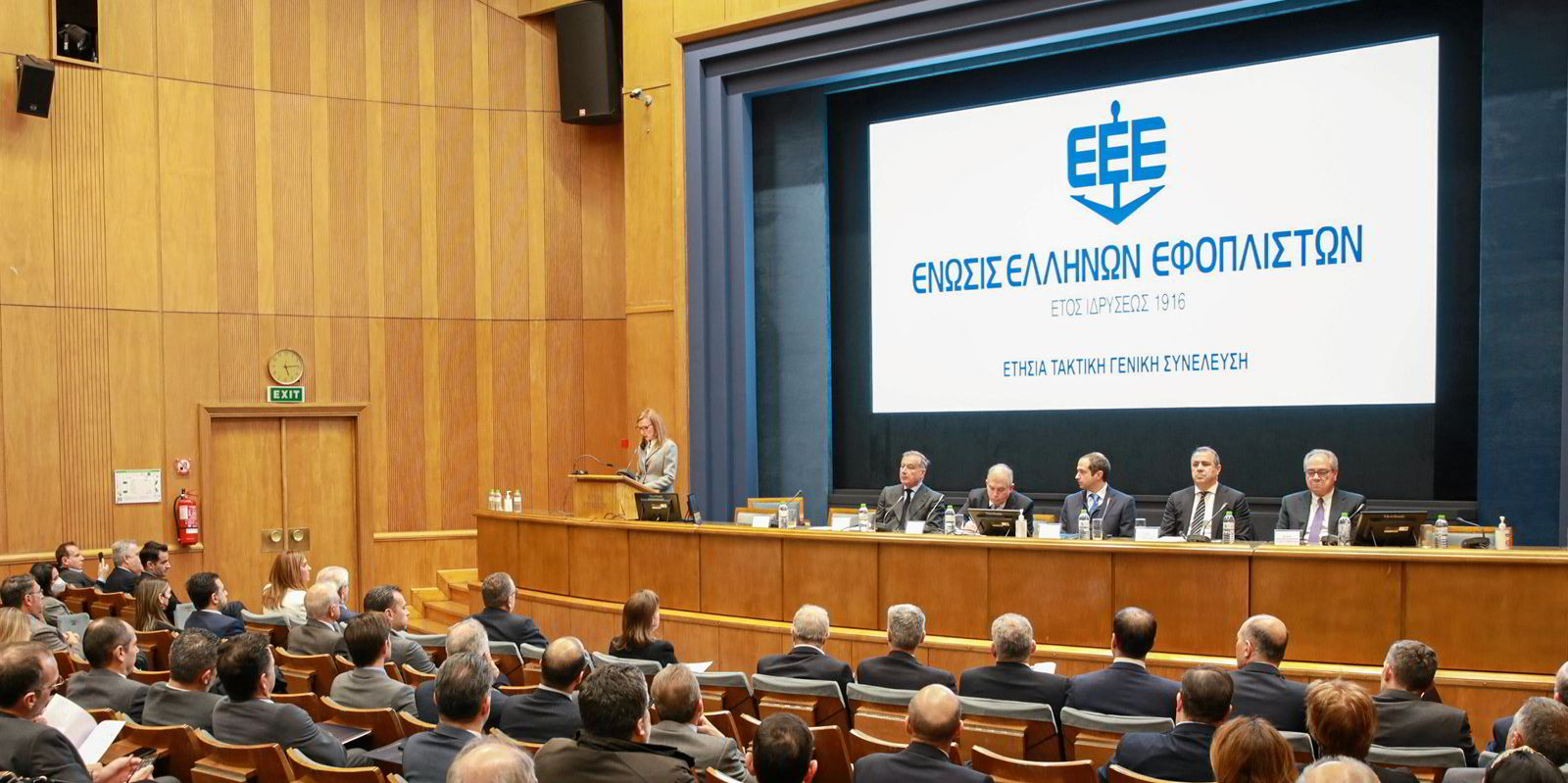The Union of Greek Shipowners (UGS) is throwing its weight behind calls for amendments to the IMO’s Carbon Intensity Indicator (CII), which entered into force this year.
Given the shortcomings of the gauge, it is good that ships that fail to comply with it will not be punished during the transitional period until 2026, when it is set to be revised, UGS president Melina Travlos said on Thursday during the union’s annual general assembly.
“In the end, it [the CII] is unfair to all ships,” Travlos said, announcing that the UGS board has set up an internal special committee to “highlight the weaknesses of the measure”.
The task of the group will be to “collect and assess data with a view to shape and put forward proposals that can improve the regulation and mitigate its impact”.
The latest statements by the UGS, which represents the world’s biggest shipping community, reflect growing frustration and unease in maritime circles with the CII.
Shipowners, some from Greece, are claiming that the way the index is measured is unfair towards certain classes of ships, or that it encourages trading patterns that defeat its environmental purpose.
Some have even accused charterers of using loopholes in the regulation to employ ships that are not covered by CII regulations.
Ideas on how best to revise the gauge in 2026, and maybe even earlier, are already making the rounds.
On 9 February, a senior Trafigura manager suggested that it should be based on the Energy Efficiency Operational Indicator rather than on the Annual Efficiency Ratio used currently.
The CII is not the only ship efficiency classification regime attracting UGS criticism.
Travlos said that the UGS was “in open dialogue” with RightShip, a digital shipping vetting platform, to “highlight the weaknesses of the scoring system” it has developed.
“We demand a Safety Score… that’s fairer and avoids the unjustified downgrading of our ships,” Travlos said.
The UGS will be able to dedicate more of its resources towards influencing ship performance indicators after resolving another burning matter closer to home.
After years of probing Greece’s shipping tax regime, the European Union finally decided to close the issue, Travlos said during her speech.
That development comes after a new tax deal between Greek shipowners and their government late last year, which was specifically designed to address regulators’ concerns.







